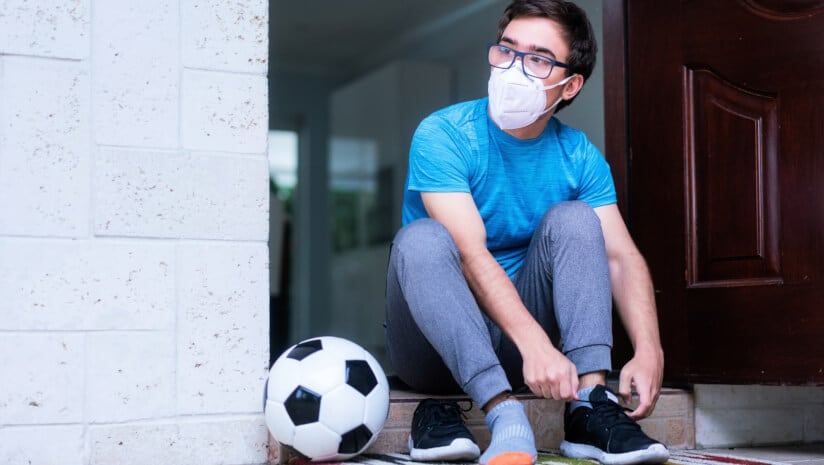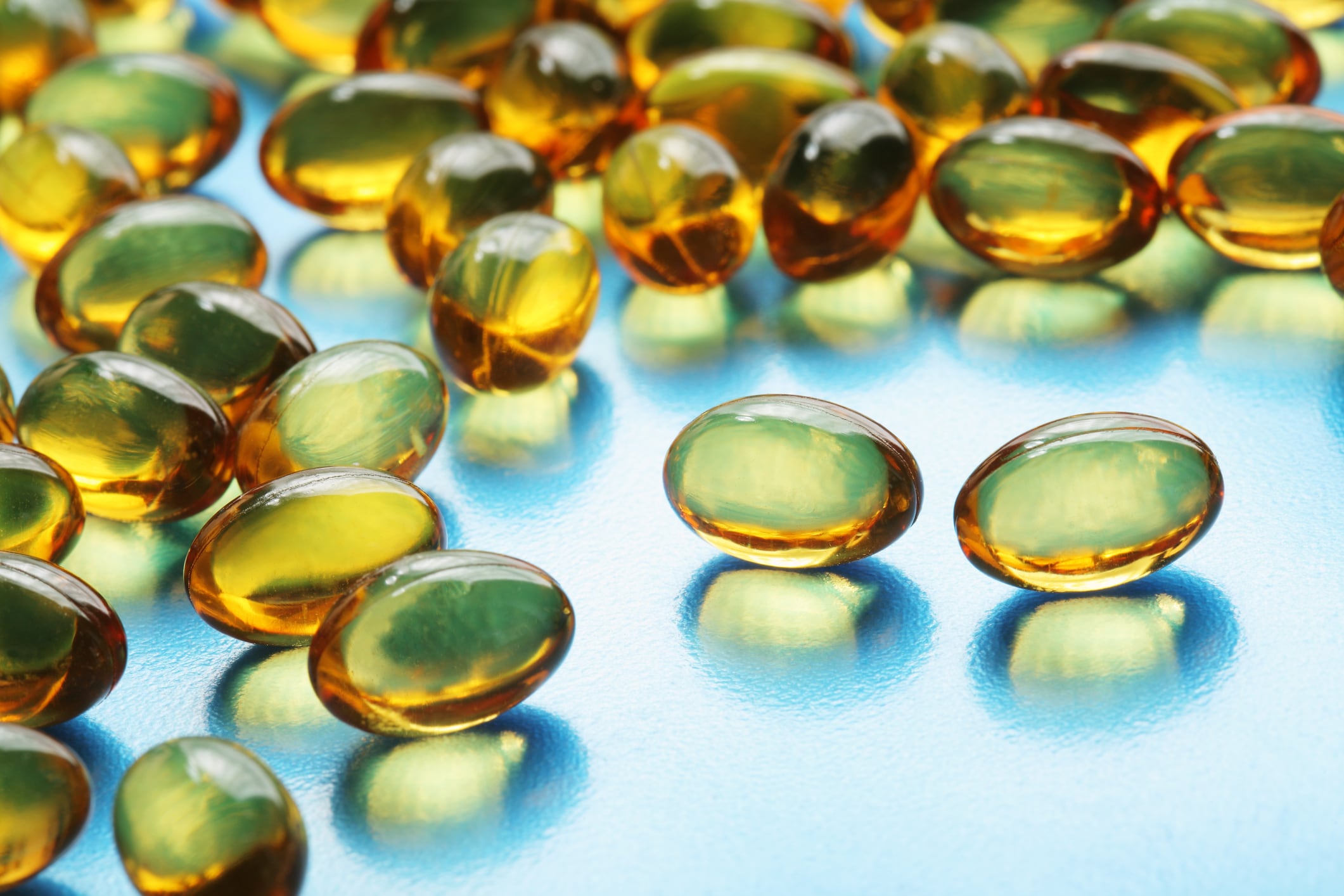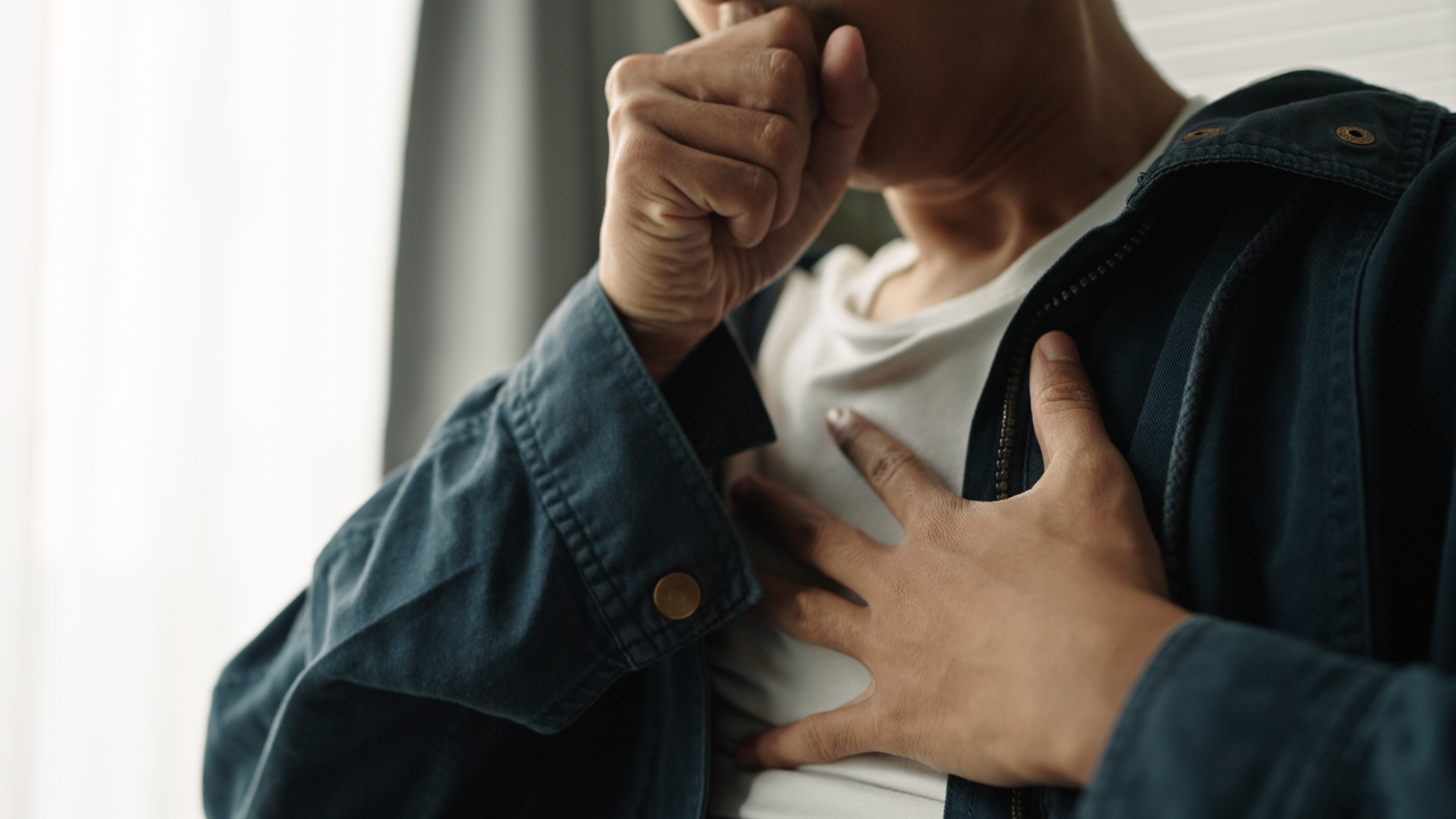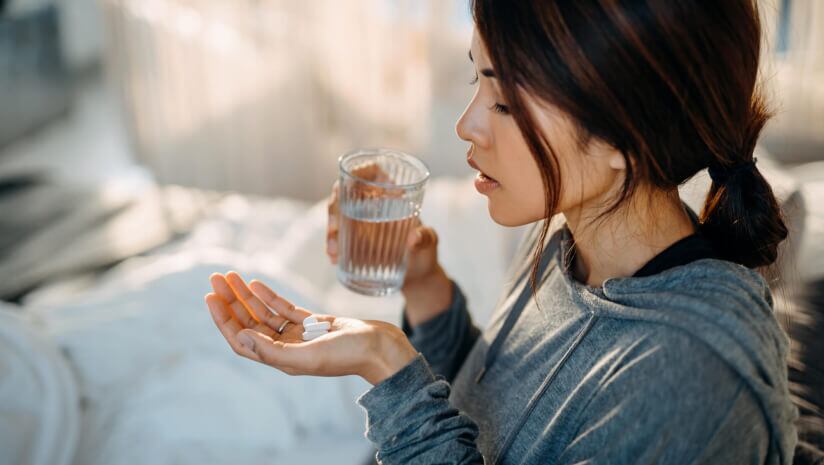The research found that participants who received dietary supplementation in conjunction with a balanced dietary plan had better results in numerous physical tests at both one and three months post-infection.
“Nutrition intervention with a strict dietary plan and an increase in daily calories and protein and also vitamin and mineral supplements in young athletes may be effective for faster recovery of physical parameters from COVID-19 infection,” the researchers wrote in the journal Nutrients.
Supplements for athletic performance: what does the research say?
Studies have shown that COVID-19 infection negatively impacts athletes’ physical performance and increases the risk of injury.
Since adequate intake of both macro and micronutrients has been shown to improve overall health and physical performance, many athletes received dietary balance programs during the COVID pandemic—including the use of supplements where necessary.
In fact, the European Society for Clinical Nutrition and Metabolism (ESPEN) recommended that nutritional support with omega-3 polyunsaturated fatty acids, iron, zinc, vitamin D and vitamin B be considered for all patients with COVID-19 infection.
Previous research has shown the positive impact of individual nutrients (such as Vitamin D) on athletic performance, but few have looked at how intake of multiple micronutrients impacts performance in young athletes.
Study details
To conduct the study, researchers from Titu Maiorescu University in Romania recruited 99 male football (soccer) players between the ages of 13 and 15 with a mild COVID-19 infection.
All participants were advised to follow a balanced dietary plan of between 2,000 and 2,500 calories, which aimed to support both harmonious growth and athletic performance. Roughly half of the group were also assigned dietary supplements, while the other half were not.
The recommended dietary supplements varied depending on the season and day of the recovery process but included Tonotil, vitamin C and Sargenor (see table).
| Supplement | Ingredients | Amount (per day) |
|---|---|---|
| Summer/Autumn | ||
| Tonotil | L-phosphoserine, L-glutamine, L-phosphothreonine, arginine hydrochloride, vitamin B12 | One vial |
| Vitamin A-Z | Vitamin A, lutein, vitamin D, vitamin E, vitamin K, vitamin C, vitamin B1, vitamin B2, niacin, vitamin B6, folic acid, vitamin B12, biotin, pantothenic acid, calcium, phosphorus, magnesium, iron, zinc, copper, selenium, chromium, molybdenum | One tablet |
| Vitamin C | Vitamin C | 1000 mg |
| Carcel Stop | Magnesium, chromium, potassium, zinc, iron, vitamin B6, vitamin B12 | One tablet |
| MaxiMag pill | Ionic magnesium, vitamin B6 | One pill |
| Liv52 | Capparis spinosa, Cichorium intybus, Mandur bhasma, Solanum nigrum, Terminalia arjuna, Cassia occidentalis, Achillea millefolium, Tamarix gallica | One tablet |
| Sargenor | Arginine aspartate, vitamin B6, biotin, magnesium | One vial |
| Winter/Spring | ||
| Tonotil | As above | One vial |
| Vitamin D | Vitamin D | 1000 IU |
| Vitamin C | Vitamin C | 1000 mg |
| Silimarina Forte | Extract of Silybum marianum | 1000 mg |
| Sargenor | As above | One vial |
| Vitamin A-Z | As above | One tablet |
| Supradyn | Not specified | One tablet |
Spirometry tests were conducted to analyze lung health alongside five tests (conducted pre- and post-infection) to assess fitness and performance: hand grip strength, 10-meter sprint test, 30-meter sprint test, beep test and bench press.
Spirometry was found to be modified in 20.2% of the participants, indicating mild restriction, while the rest had normal lung function. There were no statistically significant differences between age, BMI or the percentages of mild lung restrictions in the two groups.
Long-lasting benefits
One month after infection, the intervention group saw statistically significant improvements in four of the five tests (excluding the bench press).
The same results were maintained at three months post-infection, indicating that the supplemental intervention had a significant beneficial effect on physical performance.
Based on the results, Timnea-Florescu, et al. suggested that vitamin and mineral supplements in young athletes may therefore be effective for faster recovery of physical parameters from COVID-19 infection. However, they warnd that some factors were not accounted for.
“Influencing factors, such as baseline fitness levels, training habits, mental health status and socio-economic background were not controlled,” they wrote.
They called for future studies to investigate the beneficial effects of these supplements in the context of COVID-19, as well as in other respiratory tract infections.
Source: Nutrients. doi: 10.3390/nu17030527. “The Effect of Dietary Supplementation on Physical Performance in Adolescent Male Soccer Players Infected with SARS-CoV-2”. Authors: A.-C. Timnea-Florescu, et al.





